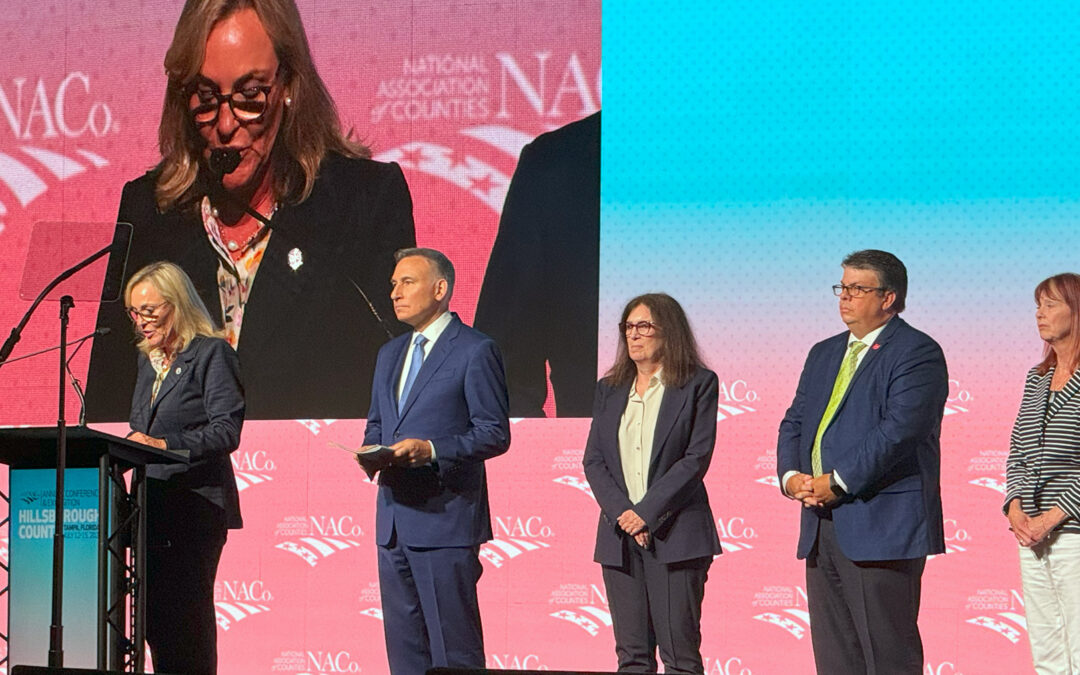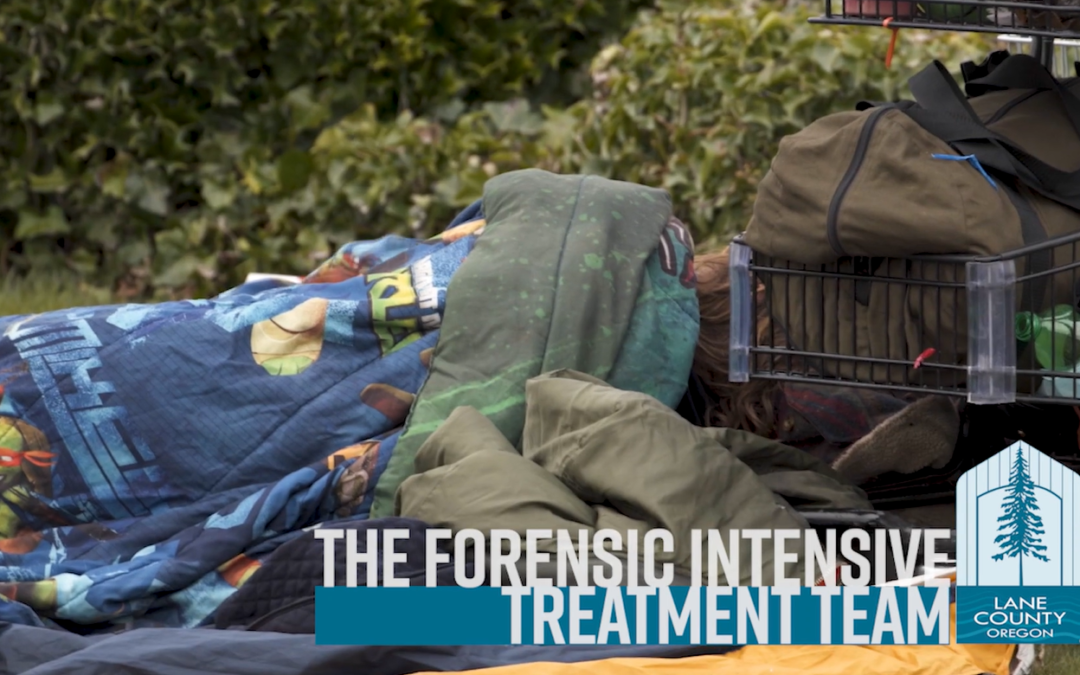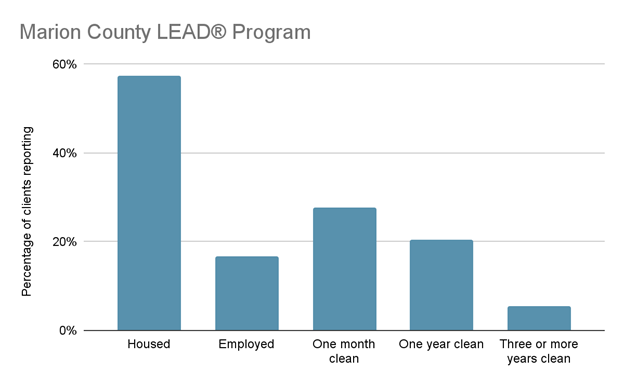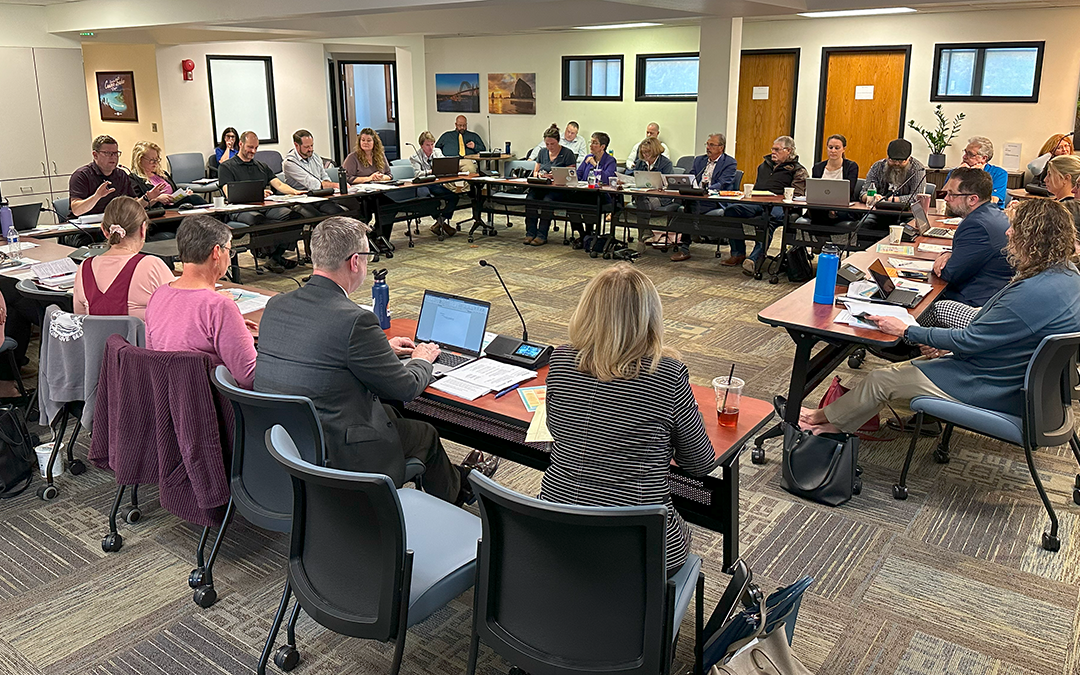
Jul 25, 2024 | Health & Human Services
NACo commission’s federal-county call to action
The NACo Commission on Mental Health and Wellbeing unveiled its final report at the annual conference in Tampa, Fla. Association of Oregon Counties (AOC) Executive Director Gina Nikkel served as a member of the commission. The report’s four federal policy priorities (plus two) align with AOC’s 2025 state legislative priorities and would increase access to quality local behavioral health services in every Oregon county. The report concludes with a matching call to action for county policy makers, outlining steps to lay the necessary groundwork in anticipation of successful advocacy in Washington, D.C.
Polk County Public Health Director Dr. Naomi Adeline-Biggs named new state public health division director
Oregon Health Authority (OHA) Director Sejal Hathi announced her appointment of Dr. Naomi Adeline-Biggs as OHA’s Public Health Division Director, effective Aug. 19. Along with an impressive history of practice and leadership abroad, Adeline-Biggs is the sitting chair of the Oregon Coalition of Local Health Officials. She was also a dynamic local public health presenter at the most recent AOC County College held in 2023.
The Oregon Criminal Justice Commission (CJC) publishes summary of county deflection program applications
In July, the CJC released a comprehensive summary of county deflection program applications. Twenty-seven Oregon counties will be standing up a new program, either individually or in partnership with a neighboring county. Marion County will use the new funds to bolster its deflection program which began in 2018. The new programs will go live on different schedules, starting in July and going through January 2025. Additional CJC materials on the deflection program, including a FAQ, can be found on the program webpage.
Contributed by: Jessica Pratt | Legislative Affairs Manager

Jun 28, 2024 | County News, Health & Human Services
Lane County is taking steps toward developing a Law Enforcement Assisted Diversion (LEAD®) model deflection program in response to the new misdemeanor for drug possession that is effective September under House Bill 4002. The program aims to redirect individuals struggling with addiction and mental health issues away from the criminal justice system and into appropriate treatment and support services. Lane County has secured half of the $1.9 million needed to develop the program and aims to launch it by the end of the year.
To spearhead this program, Lane County has appointed Clint Riley as the program coordinator. Riley, who recently retired as Lane County Sheriff’s Office Jail Commander, brings a wealth of experience from his long career in law enforcement. He has witnessed the profound impact of addiction and mental health problems firsthand and is acutely aware of the urgent need for alternative solutions. “The jail is the one size fits all system right now, but we need to have several other systems for law enforcement to use. I see a lot of people get stuck in the system because of addiction and mental health challenges. A deflection program will give police a place to put them instead of in jails or the emergency room,” Riley said.
However, Lane County faces several challenges in meeting the community’s needs. There is a pressing need for more staff to provide peer support and treatment, additional beds for those in need, and logistical solutions to serve the large geographical area spanning from the coast to the Cascade Mountains. Lane County is also grappling with a high rate of overdose deaths, one of the highest in Oregon, according to Riley, alongside a substantial unhoused population.
Unlike Marion County’s LEAD® program, which is managed by the sheriff’s office, Lane County’s program will be operated by the Community Justice and Rehabilitation Services Department. Regular meetings are being held with various stakeholders, including law enforcement agencies, the courts, the district attorney, and behavioral health agencies, to tailor a program that addresses the specific needs of the Lane County community.
The deflection program will complement existing services such as FITT (Forensic Intensive Treatment Team) and CAHOOTS (Crisis Assistance Helping Out On The Streets). CAHOOTS, a well-known service in Eugene and Springfield for over thirty years, provides mobile crisis intervention, whereas FITT is designed to offer intensive clinical care, case management, and peer support to individuals who frequently use jail, hospital, or institutional placement systems. Funded by the IMPACTS (Improving People’s Access to Community-Based Treatment, Support, and Services) grant from the Oregon Criminal Justice Commission, FITT focuses on delivering wraparound care, including mental health and substance use treatment, to high-need individuals.
The strategic goal of these programs is proactive engagement — reaching individuals before they reach a crisis point, thereby preventing their entry or re-entry into the criminal justice system. By meeting clients where they are and bringing services directly to them, these initiatives aim to build meaningful connections and relationships with those who are often caught in a cycle of crisis and institutionalization.
“The opportunity to create a new program that has the potential to save lives by connecting people facing substance use issues to the right home for their needs is one we are taking very seriously,” said Lane County Board of County Commissioners Chair Laurie Trieger. “It is energizing to work with a wide range of community partners to imagine new ways to help people. If we do this right, we can not only help people suffering with substance abuse issues, but improve the lives of their loved ones and the community at large, too.”
Contributed by: Erin Good | Communications Coordinator
This is the second article in AOC’s series on counties setting up deflection programs. Read the previous article about Marion County: County Deflection Programs | Marion County Law Enforcement Assisted Diversion (LEAD®) Program

May 28, 2024 | County News
The Oregon Behavioral Health Deflection Program, established at the Oregon Criminal Justice Commission (CJC), is intended to re-establish local partnerships between law enforcement and the behavioral health safety net to effectively connect individuals to treatment and recovery while minimizing costly interactions with the justice system.
Twenty-three Oregon counties opted in to receive fast-tracked funding to stand up deflection programs, two of which applied as a consortium. While most counties are in the early planning stages, a few counties have been already assisting individuals facing mental health and addiction challenges through deflection programs.
AOC is running a series of articles in Oregon Trails to explore existing deflection initiatives, their successes, challenges, and how counties are preparing for the new drug related misdemeanor effective on Sept. 1.
Established in 2018, Marion County’s Law Enforcement Assisted Diversion (LEAD®) program provides community members access to services aimed at reducing recidivism. Based on the national LEAD® program model which started in Seattle, Marion County’s deflection program is initiated by either law enforcement in lieu of making an arrest, or through community referral based on an individual’s history of behavioral health conditions.
 Residents in Marion County’s large rural areas often face challenges in accessing traditional services, including support for substance use disorders and mental health challenges. Local law enforcement officers in these rural areas, though well-acquainted with their communities, may not have the same resources as their urban counterparts. By collaborating with the LEAD® program, officers can link these residents to needed services. LEAD® Navigators work with officers to provide targeted outreach and integrate individuals into the program. Individuals are referred by law enforcement to LEAD® by arrest diversion, instead of making an arrest, or social referral based on history of behavior and conditions vetted by an informed group. The program offers 24/7 support, ensuring assistance is available across Marion County, filling gaps left by other programs.
Residents in Marion County’s large rural areas often face challenges in accessing traditional services, including support for substance use disorders and mental health challenges. Local law enforcement officers in these rural areas, though well-acquainted with their communities, may not have the same resources as their urban counterparts. By collaborating with the LEAD® program, officers can link these residents to needed services. LEAD® Navigators work with officers to provide targeted outreach and integrate individuals into the program. Individuals are referred by law enforcement to LEAD® by arrest diversion, instead of making an arrest, or social referral based on history of behavior and conditions vetted by an informed group. The program offers 24/7 support, ensuring assistance is available across Marion County, filling gaps left by other programs.
Eight other counties are exploring similar LEAD® programs for their communities — Baker, Clackamas, Clatsop, Columbia, Crook, Deschutes, Hood River/Wasco, and Lane counties.
On May 9, a HB 4002 Implementation and Training Symposium was held in Salem, sponsored by the Oregon District Attorneys Association, Oregon State Sheriffs’ Association, Oregon Association of Chiefs of Police, League of Oregon Cities, and the Department of Public Safety Standards and Training. Among other presenters, Marion County’s LEAD® Program provided in-depth training on their program to aid other counties considering developing their own deflection programs. View resources and videos of the symposium here.
Marion County’s LEAD® program collaborates with a wide range of partners, including public safety, health, and justice agencies, as well as organizations offering outreach, case management, housing, transportation, and treatment services. The collective efforts of these partners is essential for achieving long-term success.
According to the Marion LEAD® Program newsletter (November 2023), performance measures show that the program is making significant impacts (see table below).

More recent data shared by Marion County show similar trends. Of the 19 clients in the first cohort (entered program in 2018-19) who participated in a follow-up assessment, 52.6% are housed, 47.4% are employed, and 47.4% report a good quality of life.
In anticipation of an increase of clients after Sept. 1, Marion County is planning to expand the LEAD® program by hiring additional staff. Currently, the program has three fully trained Navigators and one in training. An additional Navigator, as well as a management analyst is needed to manage the expected increased workload.
Marion County meets the large majority of the statutory requirements to access the deflection program grants through the CJC but will need to update their systems to the REDcap data collection software that the CJC is using for standardized implementation of the participating deflection programs. The program is also planning to reinstate its mobile crisis intervention teams, which were discontinued April 1, due to lost funding. The reinstated mobile crisis team will allow for law enforcement and a mental health clinician to co-respond to crises in the community.
Marion County, like all Oregon’s counties, play a critical role in connecting individuals to treatment and recovery through partner engagement and relationship building. AOC held a deflection program summit on March 18, to help county commissioners and local partners understand the CJC’s program requirements and timeline. The summit’s plenary and regional break-out session recordings and materials are available in the AOC archive.
AOC will convene the CJC, county commissioners, and local deflection partners as needed through the summer and fall to assist in program planning and implementation. Please contact Jessica Pratt or Jen Lewis-Goff to receive those meeting notifications.
Contributed by: Erin Good | Communications Coordinator

Mar 26, 2024 | AOC Advocacy, Health & Human Services
Addressing Oregon’s opioid crisis and reforming Ballot Measure 110 were among top priorities for legislators during the 2024 short session. HB 4002 and its companion funding bill, HB 5204, passed the legislature overwhelmingly with bipartisan, bicameral support, instituting a variety of new programs and policies. Among those new programs is the Oregon Behavioral Health Deflection Program, established at the Criminal Justice Commission (CJC) to coincide with the newly created misdemeanor for possession of a controlled substance.
The new misdemeanor, coupled with the deflection program, is intended to re-establish local partnerships between law enforcement and the behavioral health safety net to effectively connect individuals to treatment and recovery while minimizing costly interactions with the justice system.
Twenty-three Oregon counties opted in to receive fast-tracked funding to stand up deflection programs. These counties are encouraged to establish their deflection programs quickly in preparation of the new misdemeanor’s effective date of Sept. 1. Initial funds may also be used as planning grants for counties needing time to explore programmatic options. The legislature also allocated funding through the end of the current biennium to support the coordination and case management of deflection program participants in each county and federally recognized Oregon tribe, which means every interested county government still has the opportunity to draw down their formula funding to set up a program.
The Association of Oregon Counties (AOC) was successful in advocating for maximum flexibility in how a local deflection program is administered and operated, allowing the required local partners (law enforcement, the district attorney, county government, the Community Mental Health Program, and a Behavioral Health Network provider) to make the best use of their existing resources and processes.
Over 150 county leaders attended AOC’s first deflection program summit on March 18, designed to help county commissioners and local partners understand the CJC’s program requirements and timeline, as well as equipping county leaders to begin formulating their local implementation plans. The summit’s plenary and regional break-out session recordings and materials are available in the AOC archive.
AOC will continue to convene the CJC, county commissioners, and local deflection partners through the summer and fall to assist in program planning and implementation. Please contact jpratt@oregoncounties.org or jlewis-goff@oregoncounties.org to receive those meeting notifications.
Contributed by: Legislative Affairs Managers Jessica Pratt and Jen Lewis-Goff






